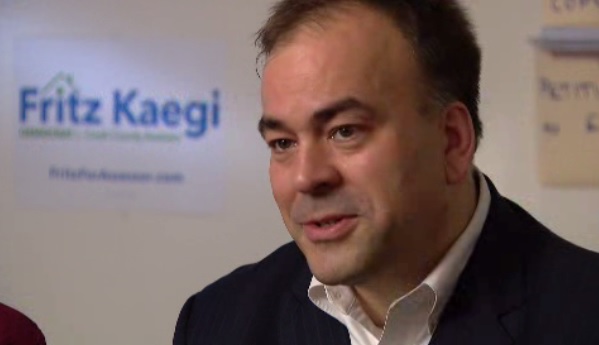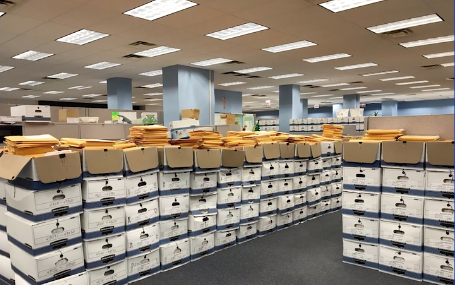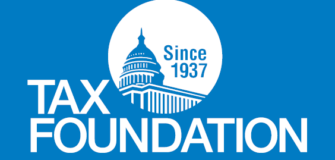Cook County Assessor updates TMA on property assessment proposal
Share

The newly-elected Cook County Assessor Fritz Kaegi told members of TMA’s Government Relations Committee Tuesday morning (2.26.2019) that when he assumed office in December 2018, he walked into a mess of old files.
“The rows of file boxes resembled the final scenes of the ‘Raiders of the Lost Ark,'” Kaegi said, referring to photos his staff took of the former assessor’s antiquated files in the Clark Street office in Chicago.

The assessor’s office is to determine how Cook County’s $14 billion levy is divided among the property owners, based on value. Kaegi says his administration will focus on transparency, fairness and accuracy.
Immediately upon assuming office, his staff began seeking modernization ideas from cities and counties similar in size to Chicago and Cook County. They are now looking to the Illinois General Assembly for the statutory change needed to update Cook County’s data collection.
The measure, “Data Modernization to Promote Fair, Accurate & Transparent Property Tax Assessments” was introduced as HB 2217 and SB 1379.
HB2217 is sponsored by State Reps. Davis, Zalewski, Burke, Crespo, Welch, Villanueva, Rita, and Mah. SB1379 is sponsored by Sens. Hutchinson and Harmon.
The following is Assessor Kaegi’s office’s presentation of the legislation:
Today, Assessors in each of Illinois’ 102 counties are forced to determine the value of income-producing properties without access to the latest market data, including operating income and expense data. Our proposed legislation (HB 2217 and SB1379) closes this gap.
The proposal will improve data collection and brings Cook County and Illinois in line with professional practices used by Assessors in at least 17 other States, including Florida and Virginia, and dozens of major cities, including New York City, Boston, D.C., and Seattle.
The bill gives the Cook County Assessor’s Office the ability to collect Operating Income and Expense Data (the same as is shown on IRS Schedule E and already submitted to the Cook County Board of Review for property owners who appeal) for income-generating properties. Other counties, by County Board resolution, may opt-in to this practice and authorize their assessors to collect this data.
● By collecting income and expense data up front — on an anonymized and bulk basis —our modeling and valuations teams will be able to take current market rents, vacancy rates, and other trends into account to deliver more fair, accurate and transparent assessments.
● Many smaller properties are exempted, including commercial properties with a market value under $400,000, and residential properties with 6 or fewer units or with a market value under $1 million.
● The bill specifically provides that data be collected confidentially and not be subject to disclosure under the Freedom of Information Act (FOIA) prior to market-level compilation.
● No appraisal or lawyer is required to submit data. The data is submitted in electronic form for the previous year.
● The modernized data collection permitted by this bill would produce valuable rent, vacancy, and cap rate data–especially for neighborhoods–that will be useful to property owners, investors, and the general public, and will make assessment processes more transparent.
● Using improved data will help eliminate uncertainty and hidden costs in the current system that deter institutional investment and weaken our economy.
● Using transparent assessment methodology and better data will make it easier for institutions to invest in less familiar asset classes and neighborhoods, giving a boost to places that need it most.
Last updated February 15, 2019
Assessor Kaegi also recently presented detailed information at the Chicago City Club. View his presentation HERE.
Assessor Kaegi is scheduled to visit TMA’s Schaumburg headquarters March 27, 2019. For more information, HERE.


